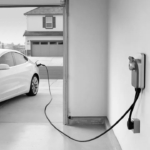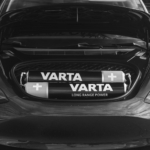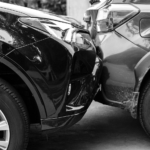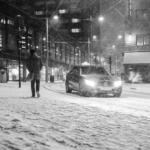Who Is Responsible When An Autonomous Vehicle Crashes?
95% of car crashes are caused by driver error, according to Fox 43. Therefore, you’d expect the nation to welcome autonomous vehicles with open arms. Yet, 59% of U.S citizens claim that driverless vehicles won’t be any safer than vehicles driven by humans. Despite the nation’s hesitations over self-driving vehicles, it is believed that this new technology will save lives on the road. But, with several well documented autonomous vehicle crashes having already occurred, it’s safe to assume that accidents will happen. So, who foots the bill when a self-driving car crashes?
How autonomous vehicle crashes happen
As an increasing number of autonomous vehicles hit America’s roads, the number of crashes caused by human error is expected to decline. However, crashes caused by defects in the software that operates these vehicles will increase. In 2016, the driver of a Tesla sports car, which was traveling on autopilot, was killed after it crashed into a tractor-trailer rig. Investigations into the crash revealed that the car’s system failed to register the trailer as a moving object. Current legislation states that there must be a ‘driver’ in autonomous vehicles. However, these drivers aren’t always paying full attention to the road. Following the sad death of a female pedestrian who was hit by an autonomous Uber vehicle earlier this year, an inside recording of the cabin revealed that the driver was distracted by her phone during the drive.
Compiling with the law
Various states have different laws in place regarding autonomous vehicles to protect their citizens. Texas has signed the Senate Bill 2205 which states that all driverless vehicles traveling on Texan roads must comply with all existing traffic laws, be equipped with video recording devices and have the same level of insurance cover as any other vehicle. Meanwhile, in Connecticut, autonomous vehicles must have a minimum $5 million of insurance in place for testing purposes. Protecting your vehicle while on the road with the appropriate level of insurance cover is a necessity for any vehicle owner and care should be taken to ensure that you find an insurer which covers your type of vehicle.
Who will pay?
There are multiple parties who will be involved in the cleanup operation following an autonomous vehicle crash. The individual sitting behind the wheel, the vehicle manufacturer and the software developer will, in most cases, have a part to play in any collision. But, ultimately, it’s looking likely that insurance companies will be footing the bill. And, with car insurance having already risen by 7.6% in the past year, the nation could soon see an even bigger hike in their premiums. There have been calls for a no-fault insurance policy to be put into place, specifically aimed at driverless vehicles, but it remains to be seen whether this will be introduced once driverless cars hit the country for good.
Autonomous vehicles are expected to become the norm any day now. Therefore, it’s essential the country knows who is and isn’t responsible when such a vehicle crashes. A review of recent driverless vehicle crashes shows that system faults and operator error have occurred, but it would appear that insurers and the nation, will end up footing the bill, too.





